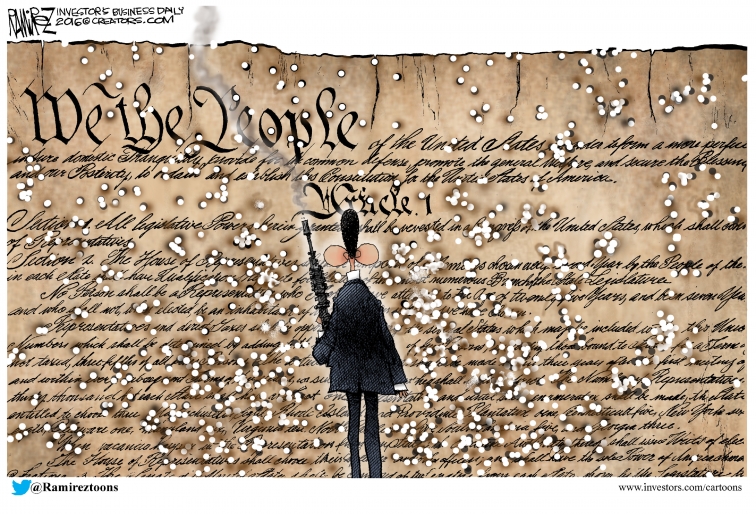In a recent Daily Caller piece entitled “Patents Are Private Property, Too,” Eagle Forum adviser James Edwards throughout most of his column marshals a strong defense of America’s intellectual property (IP) rights system.
Unfortunately, in his final two paragraphs he needlessly and erroneously detours into alleging that patent litigation reform efforts before Congress somehow undermine IP protections. The truth is precisely the opposite. Patent litigation reform and IP rights are complementary, not contradictory.
CFIF takes a backseat to no organization in defending IP rights, and Edwards rightly highlights how America’s strong IP system provides the foundation upon which we became and remain the most innovative and prosperous nation in human history. He correctly notes that our Founding Fathers considered IP a natural right no different than physical property, and how they accordingly specifically protected them in the text of the Constitution. As Abraham Lincoln later observed, “The patent system added the fuel of interest to the fire of genius.”
And as we have noted repeatedly, it is not by coincidence that America maintains the world’s strongest IP protections while also standing unrivaled as the most inventive, powerful, prosperous and influential nation in history. That relationship is causal.
Unfortunately, in his final two paragraphs Edwards veers regrettably astray. Specifically, he claims that patent litigation reform legislation currently under Congressional consideration would somehow undermine patent rights and “make it much more difficult and riskier to defend one’s patent against infringers.”
Respectfully, that is flatly false.
Patent litigation reform legislation, which passed the House two years ago with an overwhelming 325-to-91 majority, addresses how patent disputes are litigated, not patent rights themselves.
Under current law, as most people know, overly litigious actors can file frivolous lawsuits or baselessly defend against valid claims because it’s highly unlikely under our current system that they’ll be forced to pay the other side’s attorney fees and litigation costs when they ultimately lose. That’s because American law generally requires each side to pay its own costs and fees, even if the other side’s claim was weak. As a litigating attorney who defended against innumerable frivolous claims in my legal career, I can confirm firsthand that winning an award of costs and fees from even the most egregious litigants is exceedingly and unfortunately rare. Accordingly, bad actors often use our court system to extract improper settlements or frighten legitimate patent holders from defending their rights due to the prospective time and costs of litigation.
That’s where patent litigation reform comes in.
The Innovation Act, the bill that CFIF most strongly supports, targets abuse of our court system by: (1) Holding losing parties accountable for prevailing parties’ attorney fees and costs unless they can demonstrate that their “position and conduct … were reasonably justified in law and fact, or that special circumstances (such as severe economic hardship to a named inventor) make an award unjust”; (2) Reforming pleading standards to require greater clarity and justification for their case, rather than relying on vague and unintelligible boilerplate allegations; (3) Increasing transparency regarding the true owners of disputed patents; and (4) Streamlining the burdensome discovery process, which too often imposes oppressive burdens and delays resolution of cases.
Those are manifestly common-sense litigation reforms that all Americans, particularly conservatives and libertarians who broadly favor reform of America’s flawed system of litigation, should support.
CFIF simply would not support any bill that undermined America’s patent or other IP protections. The simple fact is that patent litigation reform would protect legitimate patent holders, and the only people with anything to fear are those who cannot demonstrate that their claims are based upon good faith and valid law – which is not difficult for legitimate litigants to show. We therefore encourage all of our supporters and activists across the country to contact their elected representatives in Congress to voice their support for badly-needed patent litigation reform legislation.

 In an interview with the Center for Individual Freedom, William Yeatman, Senior Fellow at the Competitive Enterprise Institute, discusses the EPA’s Clean Power Plan overreach and why the Model FIP is a cap-and-trade policy and thereby raises concerns under the Tenth Amendment of the U.S. Constitution.
In an interview with the Center for Individual Freedom, William Yeatman, Senior Fellow at the Competitive Enterprise Institute, discusses the EPA’s Clean Power Plan overreach and why the Model FIP is a cap-and-trade policy and thereby raises concerns under the Tenth Amendment of the U.S. Constitution.
 In an interview with CFIF, Ted Frank, Senior Attorney and Director of the Center for Class Action Fairness at the Competitive Enterprise Institute, discusses unfair class action procedures and settlements and the petition for certiorari before the US Supreme Court in Frank v. Poertner.
In an interview with CFIF, Ted Frank, Senior Attorney and Director of the Center for Class Action Fairness at the Competitive Enterprise Institute, discusses unfair class action procedures and settlements and the petition for certiorari before the US Supreme Court in Frank v. Poertner.
 In an interview with CFIF, Cam Edwards, host of NRA News’ Cam & Co., discusses President Obama’s proposed executive action on gun control, how the president’s stated belief in the Second Amendment is inconsistent with his executive action, and why the executive actions will do nothing to stop violent crime.
In an interview with CFIF, Cam Edwards, host of NRA News’ Cam & Co., discusses President Obama’s proposed executive action on gun control, how the president’s stated belief in the Second Amendment is inconsistent with his executive action, and why the executive actions will do nothing to stop violent crime.

 CFIF Freedom Line Blog RSS Feed
CFIF Freedom Line Blog RSS Feed CFIF on Twitter
CFIF on Twitter CFIF on YouTube
CFIF on YouTube